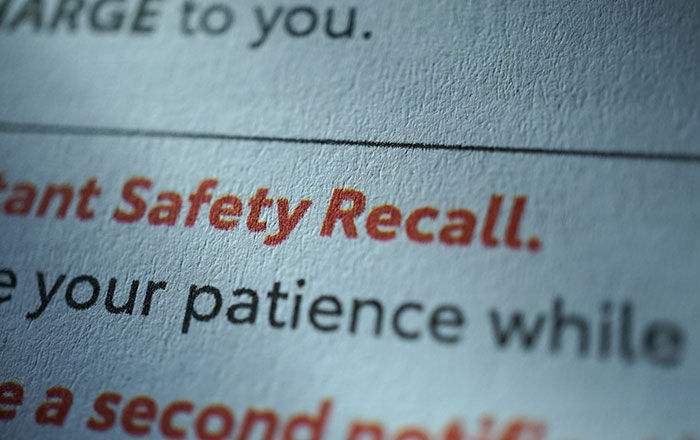How do I know if I need an injury lawyer?
If you or a family member experiences a serious injury, you can benefit from speaking to an injury lawyer. Often, the insurance company for the person who caused the accident will try to settle with you before you have an opportunity to retain an attorney because they know they can probably settle the case for less money. If you have legal representation, your injury lawyer, who is experienced in all aspects of personal injury, will investigate your case by obtaining statements from witnesses, taking photos of the auto accident scene and vehicles involved and doing everything he or she can to make sure you receive an appropriate settlement, or prepare your case to go to trial.
Is there a charge for our first meeting?
No, there is no charge to have your case reviewed by our South Carolina accident lawyers.
How is my injury lawyer paid? What if I can’t afford an injury lawyer?
Unlike many other lawyers, our personal injury lawyers work on a contingency basis. That means the injury lawyer gets paid only if he or she helps collect money for you. If the lawyer is successful, a percentage of the settlement will go to the lawyer as a fee. The percentage fee is computed before deducting expenses.
If I have an accident, do I always have to bring suit against the other party to receive a settlement?
No. If either party has liability insurance and if the insurance company is willing to volunteer a fair settlement, you do not have to bring a lawsuit. If they are not willing to make a settlement, or if they are not willing to pay you the worth of your claim, then you would have to bring a lawsuit.
In South Carolina, how long do I have to file a lawsuit?
You have at least two years from the date of the accident to get your suit filed and served on the at-fault party. The time limit may be longer under certain circumstances.
Who may bring an action for damages in a personal injury case?
If you are a competent adult, over the age of 18, and are injured, you must bring the lawsuit in your own name. If you are a minor, under the age of 18, or an incompetent adult, then suit must be brought by either your parents or guardian.
How much money am I entitled to for my injuries?
There is no set amount. The primary reason you need a personal injury lawyer is to help you evaluate your case. Most injury lawyers who handle personal injury cases are familiar with how juries react in similar cases. This gives the personal injury lawyer guidance as to how to advise you regarding a fair settlement. The amount of your medical expenses, as well as your other elements of damage, will help the injury lawyer decide what your case is worth.
What is medical malpractice?
Medical malpractice is negligent medical conduct defined as doing or failing to do what a reasonably prudent healthcare professional in the same field would or would not have done under the same or similar circumstances.
What is informed consent?
Informed consent is required by the body of state laws that govern certain kinds of communication between healthcare professionals and their patients. They specify what information you must be provided so you can make informed decisions about the medical care, diagnostics, or treatment you will receive.
Informed consent laws vary from state to state. Some states, for example, require that “reasonable” information be provided, whereas others require “full and complete disclosure.”
What are nosocomial infections?
Nosocomial infections are infections acquired in a hospital. Some of these infections are unavoidable, such as those acquired by patients with weakened immune systems or by those in the last stage of a protracted illness. But depending on the study, one-third to three-quarters of nosocomial infections are preventable, making them one of the leading causes of medical malpractice suits.
The Centers for Disease Control & Prevention (CDC) has advised that the most effective way to reduce nosocomial infections is for doctors and hospital staff to wash their hands between treating patients. Amazingly, some studies suggest that doctors clean their hands between patients only 48 percent of the time!
Who can sue for medical malpractice?
Anyone who was injured or who became ill as the result of a health professional’s negligence or wrongdoing may file a medical malpractice claim. Additionally, the family of a newborn victim of medical malpractice, or of someone who died as the result of a medical error may seek compensation in a civil case.
Who can be sued for medical malpractice?
Although state statutes vary with regard to who may be sued, generally any party whose professional negligence or wrongdoing resulted in a patient’s injury may be held liable. Such parties include physicians, surgeons, nurses, hospitals, and government institutions.
What damages can I recover in a medical malpractice suit?
Compensation for any of the following damages may be recovered:
Economic damages
- Medical expenses
- Lost income
- Lost or diminished earning capacity
- Directly-related out-of-pocket expenses
- Funeral and related expenses
Non-economic damages
- Past, present, and future pain and suffering
- Disfigurement
- Disability
- Punitive damages (if the actions were intentional or grossly negligent)
How long after the medical malpractice took place must I file a claim?
The rules that determine when you can file a lawsuit are referred to as the statute of limitations. The amount of time by which you must file a claim varies by state and circumstance. In most cases, the amount of time begins when the medical malpractice took place, although sometimes it begins when the claimant discovers that medical malpractice was responsible for his or her injury.
Medical malpractice lawsuits are among the more complex and time-consuming lawsuits, and you may have many questions about malpractice you want to ask a knowledgeable lawyer. If you have been injured by a medical error, don’t delay too long before contacting an experienced medical malpractice attorney. At the law firm of McWhirter, Bellinger & Associates, P.A., in South Carolina, we can move relatively quickly on your behalf because of our long experience in prosecuting medical malpractice. But it’s still better to start sooner rather than later in gathering all the complex important information. Please call or email our medical malpractice lawyers in South Carolina today for your free case evaluation. Workers’ compensation is a state-mandated insurance program that provides compensation to employees who suffer job-related injuries and illnesses. While the federal government administers a workers’ comp program for federal and certain other types of employees, each state has its own laws and programs for workers’ compensation. For more information on workers’ comp in South Carolina, contact the law offices of McWhirter, Bellinger & Associates, P.A., in Columbia, South Carolina. During your free consultation, we encourage you to ask these questions, as well as any other questions to ask a workers’ comp lawyer.
Who pays workers’ compensation benefits?
In most states, employers are required to purchase insurance for their employees from a workers’ compensation insurance company (also called an insurance carrier). In some states, however, very small companies (with fewer than three or four employees) are not required to carry workers’ compensation insurance. In some states, larger companies that are clearly financially stable are allowed to act as their own workers’ compensation insurance companies (also called self-insuring).
When a worker is injured, his or her claim is filed with the insurance company—or self-insuring employer—who pays medical and disability benefits according to a state-approved formula.
Does workers’ compensation cover only injuries or does it also cover long-term problems and illnesses?
Your injury need not be caused by an accident—such as a fall from a ladder—to be covered by workers’ compensation. Many workers receive compensation for injuries that are caused by overuse or misuse over a long period of time; for example, repetitive stress injuries such as carpal tunnel syndrome or back problems. You may also be compensated for some illnesses and diseases that are the gradual result of work conditions such as heart conditions, lung disease, and stress-related digestive problems.
Do I have to be injured at my workplace to be covered by workers’ compensation?
No. As long as your injury is job-related, it’s covered. For example, you will be covered if you are injured while traveling on business, doing a work-related errand, or even attending a required business-related social function.
Can I be treated by my own doctor, and if not, can I trust a doctor provided by my employer?
In some states—McWhirter, Bellinger & Associates will explain this further—you have a right to see your own doctor if you make this request in writing before the injury occurs. More typically, however, injured workers are referred to a doctor recruited and paid for by their employers. Your doctor’s report will have a big impact upon the benefits you receive. Keep in mind that a doctor paid for by your employer’s insurance company is not your friend. The desire to get future business from your employer or the insurance company may motivate a doctor to minimize the seriousness of your injury or to identify it as a preexisting condition.
Can I ever sue my employer in court over a work-related injury?
Yes. If you are injured because of a reckless or intentional action on the part of your employer, you can bypass the workers’ compensation system and sue your employer in court for a full range of damages, including punitive damages, pain and suffering, and mental anguish.
To learn more about workers’ compensation in South Carolina, please contact the experienced workers’ compensation attorneys in South Carolina at McWhirter, Bellinger & Associates, P.A., today to schedule your initial consultation.
With offices in Aiken, Camden, Columbia, Lexington, Newberry, Orangeburg, and Sumter, South Carolina, our personal injury lawyers are ready to serve you.
For immediate help, call today at 888-353-5513.















